The Richard G. & Carole J. Cline Symposium
News & Events
The Richard G. & Carole J. Cline Symposium
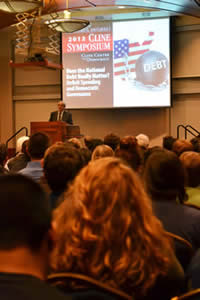
The Richard G. & Carole J. Cline Symposium is an annual event that invites prominent thought-leaders to address the campus community on topics of great public significance. Since its inception in 1995, it has attracted a number of world-renowned speakers and some of the most distinguished alumni and friends of UIUC’s College of Liberal Arts and Sciences. The Cline Symposium encompasses an extended in-person event for a select group of undergraduate students who have been nominated by faculty members, including a roundtable discussion featuring our invited panelists that is open to the public via online streaming. The Cline Symposium has established itself as one of the most visible and prestigious annual public events on the University of Illinois campus that brings together community members, faculty, and more than a hundred faculty-nominated students to discuss a plethora of important and timely issues. The symposium has pioneered a unique and engaging format that continues to produce a challenging and memorable experience for all of its participants.
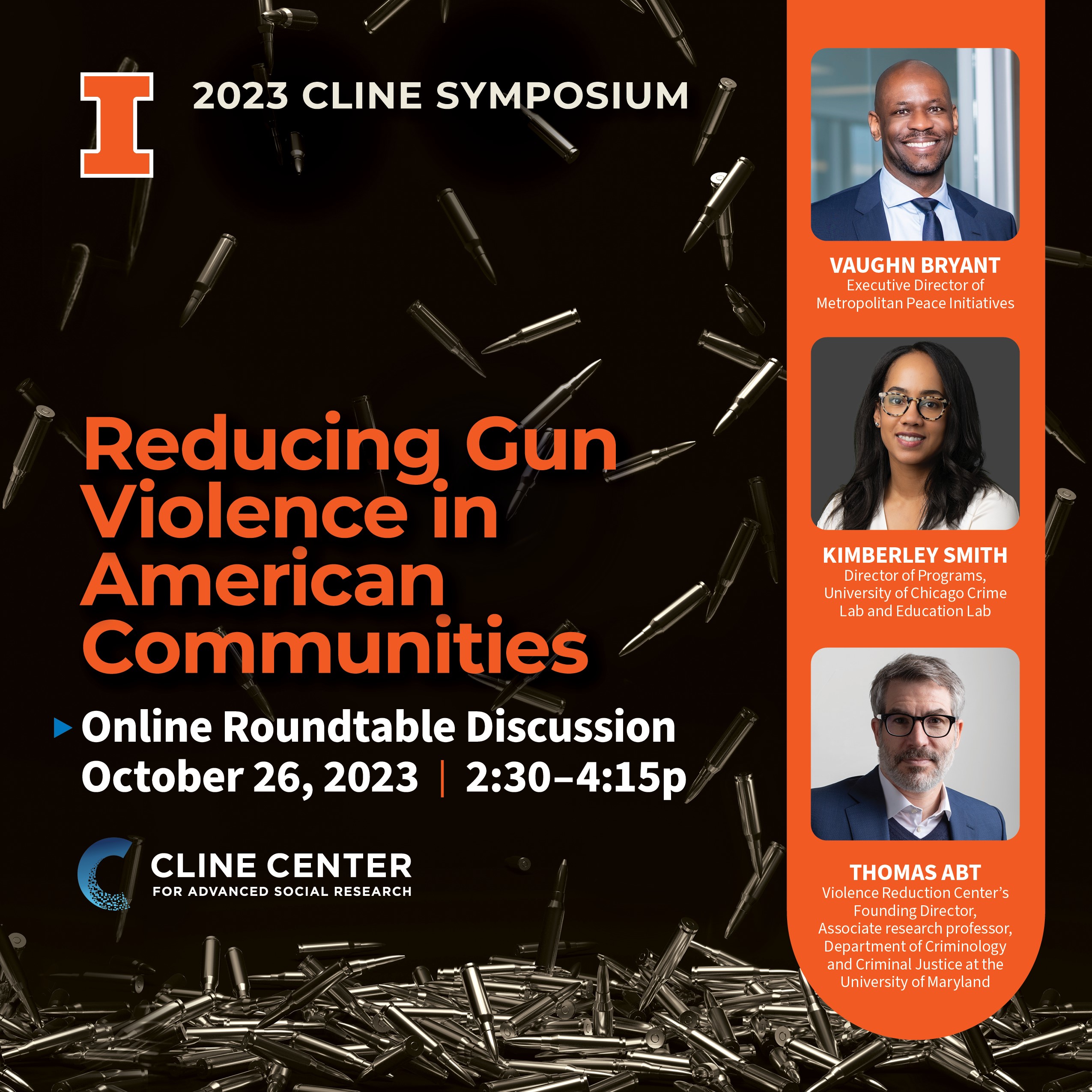
With gun violence at an all-time high, politicians, law enforcement, and communities are wrestling with how best to address the unrelenting stream of mass shootings, suicides, domestic violence, and gang-related shootings. While many policies and practices are being proposed as the best methods to reduce gun violence, there is often uncertainty in these conversations about how effective any of the proposed solutions are and what the tradeoffs would be in regard to rights, budgets, and privacy. Many voices throughout the political spectrum agree that changes need to be made, but they often disagree about the nature and scope of what needs to be done.
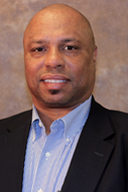
To address these concerns, the 2023 Cline Symposium held a Zoom Roundtable of national experts on the topic of reducing gun violence in the US. The roundtable was moderated by Prof. Scott Althaus and featured Vaughn Bryant, Kim Smith, and Thomas Abt. Additionally, for in-person participants, there was a presentation by Tracy Parsons (Facilitator of the Champaign County Community Coalition) on the efforts to reduce gun violence in the Champaign-Urbana area. To view the round-table discussion, please watch the video below.
Policing in America is at a critical juncture. With nationwide protests and calls for reform following the unlawful killing of George Floyd, police departments around the country have been facing renewed pressure from advocacy groups, law-makers, and community members to put into place meaningful reforms that increase accountability and rebuild trust. Yet this same pressure is also creating challenges for law-enforcement agencies that are struggling with low morale and an inability to hire and retain highly qualified officers at a time when criminal activity and gun violence are rising. Many voices in both advocacy and law enforcement groups agree that changes need to be made, but they often disagree about the nature and scope of what needs to be done. The 2022 Cline Symposium addressed a central question in this debate: What is the future of accountable policing in the United States? Four distinguished national experts served as keynote roundtable panelists for this event: Dr. Theron Bowman (Principal, The Bowman Group), Dr. Hans Menos (Vice President of the Triage Response Team, Center for Policing Equity), Dr. Renee Mitchell (Co-Founder, American Society of Evidence-Based Policing), and Chaclyn Hunt (Legal Director, Invisible Institute).
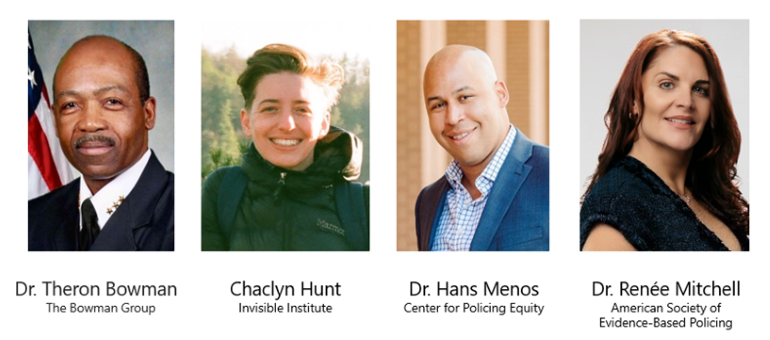
These distinguished experts, discussion leaders from outside the university, and a faculty-nominated cohort of exceptional undergraduate students gathered to discuss proposed reforms and points of tension reflected in varying perspectives on the changing role of policing in American society. The roundtable event was open to the public through an online streaming session. A recording of the event can be viewed below:
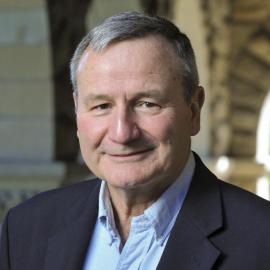 The 2019 Richard G. & Carole J. Cline Symposium featured Ambassador Karl Eikenberry, who served in Afghanistan both as envoy and as commander of NATO forces. During the symposium, he led a round table panel discussion that featured professors Scott Althaus, Xinyuan Dai ,Alyssa Prorok, and John A. Vasquez. He also gave a keynote address that was entitled "The Growing Militarization of US Foreign Policy" where he led a dialogue that engaged competing perspectives on the consequences of intervention, and whether we have come to neglect effective alternatives to force.
The 2019 Richard G. & Carole J. Cline Symposium featured Ambassador Karl Eikenberry, who served in Afghanistan both as envoy and as commander of NATO forces. During the symposium, he led a round table panel discussion that featured professors Scott Althaus, Xinyuan Dai ,Alyssa Prorok, and John A. Vasquez. He also gave a keynote address that was entitled "The Growing Militarization of US Foreign Policy" where he led a dialogue that engaged competing perspectives on the consequences of intervention, and whether we have come to neglect effective alternatives to force.
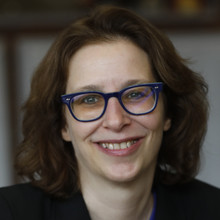 The 2018 Cline Symposium was given by Professor Heidi Kitrosser and was entitled "Democracy, the Separation of Powers, and the Future of American Constitutionalism". Many experts and pundits believe that American democratic institutions are in crisis. For more than 200 years, we have relied on a constitutional design in which three branches of government collaborate and compete as they govern. As the size and power of the government has grown, a debate has emerged between advocates of unilateral presidential authority and more traditional views of checks-and-balances. Defenders of a strong presidency fear abuse of power by unelected bureaucrats and courts. Their opponents fear excessive presidential power and secrecy, which must be counterbalanced by politically-independent civil servants, courts, and a citizenry capable of using 21st century technology to hold its leaders accountable. During the 2018 Cline Symposium, Professor Kitrosser took participants beyond the headlines and thoughtfully considered the past, present, and future of the separation of powers enshrined in the US constitution.
The 2018 Cline Symposium was given by Professor Heidi Kitrosser and was entitled "Democracy, the Separation of Powers, and the Future of American Constitutionalism". Many experts and pundits believe that American democratic institutions are in crisis. For more than 200 years, we have relied on a constitutional design in which three branches of government collaborate and compete as they govern. As the size and power of the government has grown, a debate has emerged between advocates of unilateral presidential authority and more traditional views of checks-and-balances. Defenders of a strong presidency fear abuse of power by unelected bureaucrats and courts. Their opponents fear excessive presidential power and secrecy, which must be counterbalanced by politically-independent civil servants, courts, and a citizenry capable of using 21st century technology to hold its leaders accountable. During the 2018 Cline Symposium, Professor Kitrosser took participants beyond the headlines and thoughtfully considered the past, present, and future of the separation of powers enshrined in the US constitution.
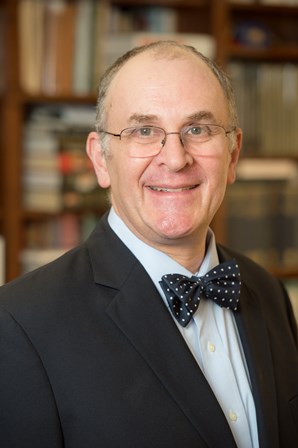 For the 2017 Cline Symposium, Prof. Eliot Cohen, one of the world’s foremost experts on diplomacy and military strategy, helped us understand big-picture questions raised by today’s headlines.
For the 2017 Cline Symposium, Prof. Eliot Cohen, one of the world’s foremost experts on diplomacy and military strategy, helped us understand big-picture questions raised by today’s headlines.
How are US national interests at stake in Iraq, Syria and Afghanistan? Are regional and global trends—not social media—driving tensions on the Korean Peninsula? Most importantly: is there a superior—and feasible—alternative grand strategy for the United States?
Prof. Cohen’s perspective on these questions is informed by his experience as a soldier and senior civilian leader at the Defense and State Departments, as well as his academic work as Director of the Strategic Studies Program at the Johns Hopkins School of Advanced International Studies | SAIS.
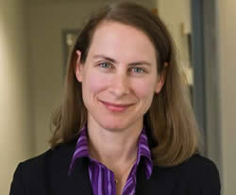
The 2016 Symposium featured Sheila Krumholz, the Executive Director of the Center for Responsive Politics (CRP). The Symposium focused on the dilemmas raised by the role of money in American democracy. We explored the tensions between the right to freely speak and participate in the ‘free market’ of ideas and the need to ensure access to the public square is an equal right and not an elite prerogative. Regulating the business of politics means balancing the influence of powerful special interests that might thwart or manipulate the ‘will of the people,’ with free speech and privacy considerations. The effects of ‘dark money,’ the Beltway ‘revolving door,’ transparency, and potential options for campaign finance reform was central to the discussions.
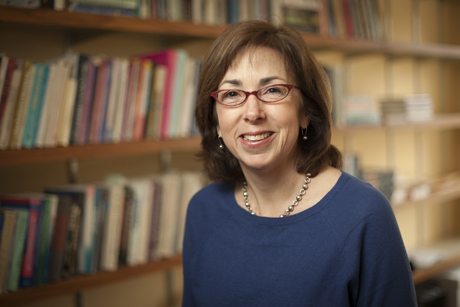
The 2015 Cline Symposium featured Prof. Susan Mettler, Alumni Associate Professor of Political Science at the Maxwell School of Citizenship and Public Affairs, at Syracuse University. This year's symposium dealt with the topic of inequality in higher education. A series of political and public policy changes have transformed the higher education system from a vital pathway of opportunity to a major source of social stratification, and the Symposium aimed to better understand why these changes occurred, and to explore ways to promote equal opportunity while maintaining high academic quality at all institutions.
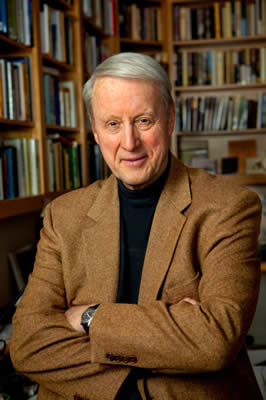
The 2014 Cline Symposium featured Hedrick Smith - Pulitzer Prize winning reporter and editor for the New York Times. and Emmy award winning producer/correspondent for the PBS show Frontline. For this event he spoke on his book Who Stole the American Dream.
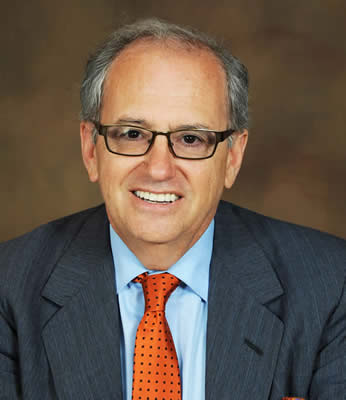
The 2013 Symposium featured Dr. Norman Ornstein - a long-time observer of Congress and politics who also writes a weekly column for Roll Call called "Congress Inside Out" and is an election eve analyst for CBS News. This year's Symposium addressed the constellation of issues surrounding budget deficits and debt. A responsible policy approach to recession and debt must make thoughtful assumptions about matters of justice (both distributive and generational), political legitimacy and accountability, the distribution of power and influence in society, and the obligations of states to citizens, citizens to states, and citizens to each other. And any serious debate about policy will inevitably raise larger questions about the proper size and scope of government, the relative roles of public and private actors in the economy, and the health and prospects of a regulated industrial capitalist economy at the start of the twenty-first century. Especially given the degree to which national economies are intertwined with each other around the world, the consequences of the choices we make today may last for many generations.
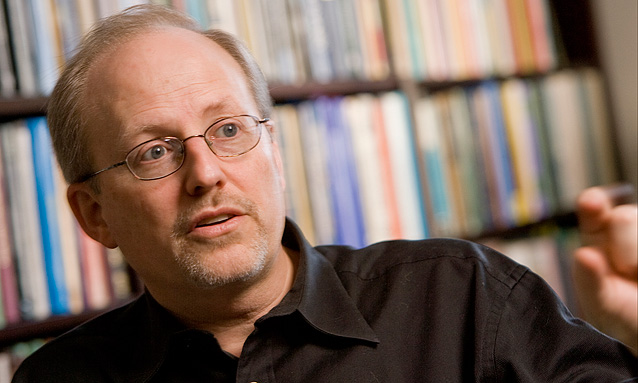
The 2013 Cline Symposium featured Prof. Timur Kuran, Professor of Economics and Political Science and the Gorter Family Professor of Islamic Studies at Duke University. He is one of the world's leading authorities on the dynamics of social revolutions and the effects of Islam on the evolution of political institutions in the Middle East. The focus of the 2013 Cline Symposium was the political origins, dynamics, and implications of momentous events from the Arab Spring. The events that swept across North Africa and the Middle East since January 2011 have transformed the political map of the region. These popular uprisings have brought down some of the most entrenched and repressive authoritarian regimes of our times. Yet the political future of the Middle East is far from set. While some countries in the region are setting up transitional governments and devising constitutional frameworks for their first democratic elections, others are in the midst of violent protests and fierce repression.
This year's Cline Symposium provided a retrospective on the Arab Spring that was both conceptual and policy-oriented. In light of the ongoing transformation in the Middle East, we examined the conditions under which popular uprisings emerge (Would these changes occur without the self-immolation that triggered the Tunisian uprising?) as well as factors that shape their dynamics and success (Are revolutions contagious? Why have they overthrown dictators in Tunisia and Egypt but not Bahrain and Jordan?); we will consider the role of repression and ideology in authoritarian governance (Does repression instigate or impede protest? Were the aging dictators of the region and their successors too slow to adapt to technological change?); we will discuss the role of economic conditions (Did increasing world food prices play a role? What about the worldwide financial crisis?), as well as the role of American and European foreign policy (Did the cautious, indirect support that the Obama administration has given to protesters facilitate or slow down the uprisings?).
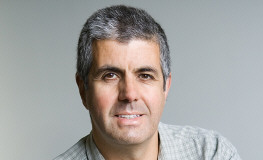
The 2012 Cline Symposium featured Prof. Jose Cheibub - the Boeschenstein Professor of Political Economy and Public Policy at the Political Science department at the University of Illinois at Urbana-Champaign. Demoracy is, today, the preferred form of political organization in the world. Unlike the state of affairs a few decades ago, the predominance is uncontested: there is no one in today's world who is taken seriously and advocated an alternative form of government. It seems that popular participation in government, even if only through the people's representatives, is the sine qua non of a legitimate political order. So much so that even the most repressive regimes on earth claim to be "democratic" or to represent their "people." Some regimes even claim to be both, such as the Democractic People's Republic of Korea. Yet, democracy is still a contested political form. The absence of challengers proposing an alternative to it does not imply a consensus about what democracy is. As a matter of fact, democracy may mean so many things to so many different people that one wonders whether its supremacy as the legitimate form of political organization for the contemporary world is not a curse in disguise. At a more academic level, definitions of democracy range from the narrow to the very broad making it a struggle to determine the "real" meaning of the term. The Fall 2012 Cline Symposium will explore why this is the case and what are the alternative views on basic criteria for labeling a country a democracy.
Legislation to reform immigration policy in the United States was proposed in December 2009, and President Obama has listed immigration reform as one of his top goals for 2010. While there is a general consensus across the ideological spectrum that the current immigration policy is rife with problems, there is much less agreement on what changes should be made. Efforts at comprehensive immigration reform were last made in 2006 and 2007. Though these efforts were unsuccessful they generated a great deal of public debate - as well as extensive press coverage of large-scale demonstrations by immigrants. Immigration reform can potentially cover a vast number of issues, including border control, sanctions against employers who abuse immigrants' vulnerable status, the type of questions to include in the naturalization test, and how many visas should be granted to workers with different skills. However, the topic that most vividly caught the nation's attention in 2006 was the question of what should be done about the millions of undocumented immigrants who are already in the U.S.
Some politicians and pundits have asserted that all undocumented immigrants should be deported. However, because of logistical difficulties that make this an impractical option, this view is shared by a relatively small portion of those informed about immigrant policy. The costs, administrative details, and unlikely success of what would be a massive and disruptive effort suggest that it is not a realistic option. The alternative is to allow the undocumented immigrants to remain under certain conditions. While "amnesty" was often the blanket term used to refer to all such proposals in 2006, the conditions varied widely, including whether these immigrants would actually be legalized and whether "amnesty" would be a one-shot deal. The issue of what to do with the millions of undocumented immigrants in this country will be at the core of the upcoming debate about immigration in the U.S. Thus, the Spring 2010 Cline Symposium will focus on issues by providing a careful overview of key issues in this debate. It will address these questions by focusing specifically on the consequences of amnesty for the United States, while recognizing that this is an issue confronting many countries around the world.
The current economic crisis has undermined America's faith in "free markets," leading many to question their highly vaunted efficiency. This change is significant because both the allure and moral foundations of free enterprise economies derive largely from their putative efficiency. As a result of recent developments, the attitudes of experts, politicians, and the public about the proper relationship between government and the economy are in flux. Some see this situation as an opportunity to implement what they view as long overdue market reforms; this can be seen in current debates over healthcare reform and the regulation of the financial sector of the American economy, for instance. Others are more hesitant about a rapid embrace of market reforms; their concerns are rooted in both short-term and long-term considerations. To many of these skeptics the developments of the latter part of the 20th century have demonstrated that there is no viable alternative to free market capitalism. To others, a commitment to free enterprise is deeply embedded in both the constitutional foundations and the American ethos. They fear that fundamentally altering this commitment could undermine the success of the American experiment.
Given both the timeliness and importance of these concerns, they will be the focus of the Fall 2009 Cline Symposium on Morality, Markets, and the Future of American Capitalism. The symposium will provide a probing and balanced consideration of key issues in this debate: What are the virtues of the market? What are the lessons of the current economic crisis? What is the appropriate balance between state and market in the post-crisis economy? It will address these questions by focusing specifically on the consequences of financial globalization for American democracy as well as political and policy challenges associated with rebuilding the infrastructure of both this country's and the world's financial markets.
There are three sets of interrelated issues in regards to education today. The first concerns the adequacy of the preparatory process. A set of financial and structural issues has undermined the capacity of schools at the K-12 level to produce students who are prepared to meet the demands of higher education. Deficiencies in student performance in areas such as reading, mathematics and science have given rise to serious concerns about our ability to produce citizen-workers of the future who can compete effectively in the global economy. Without adequately prepared students the benefits of higher education cannot be maximized. The second issue concerns access to higher education. Declines in public support of higher education and spiraling costs threaten to put higher education beyond the reach of large numbers of aspiring and qualified students who will be central to sustaining American competitiveness. The last issue concerns curricular issues and emphases within higher education. Some have advocated a greater emphasis on STEM education (science, technology, engineering and mathematics); others have argued that this reflects too narrow of a view of the 21st challenges facing the U.S. These issues must be addressed and resolved in order for higher education to play an effective role in meeting these challenges, and these will be the issues addressed and discussed throughout the Spring 2009 Cline Symposium.

